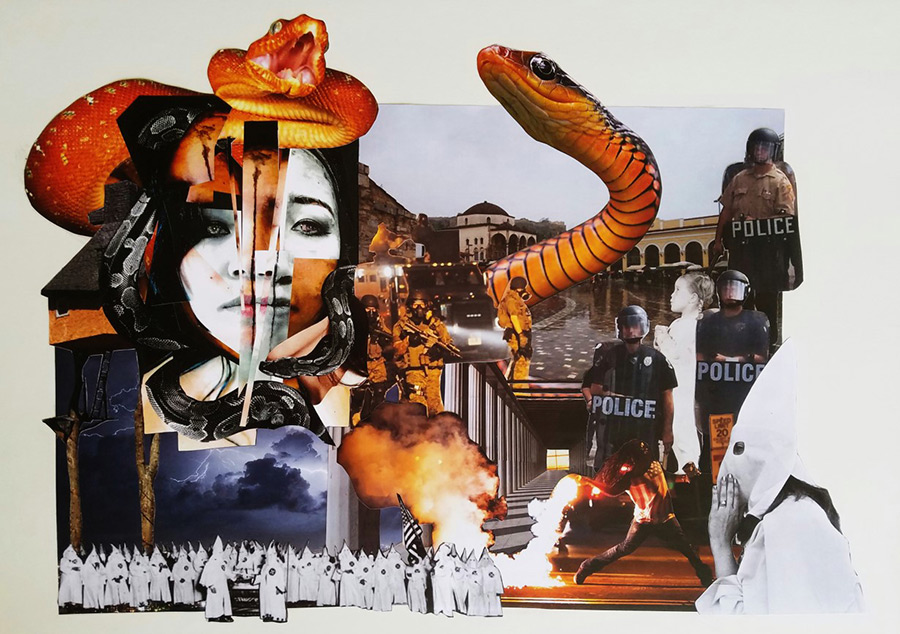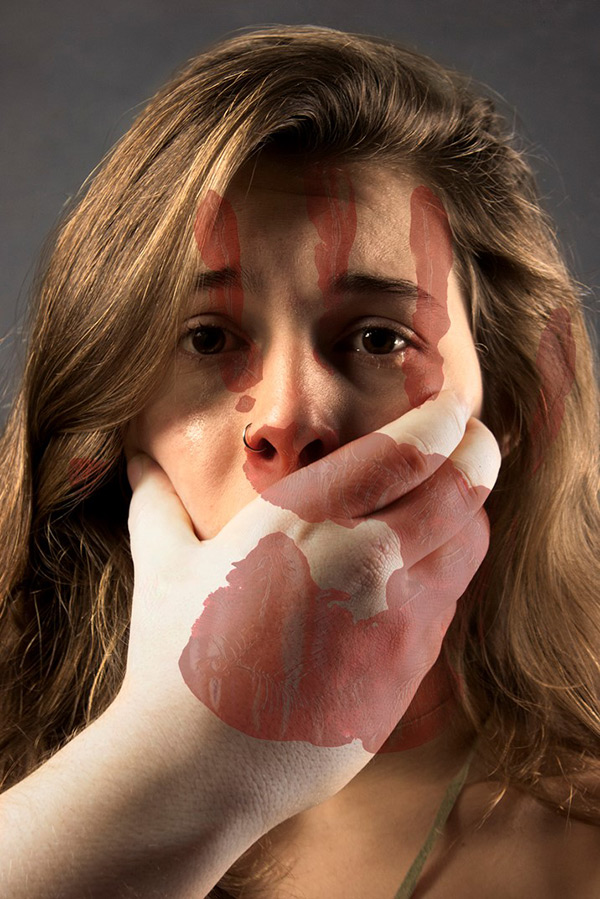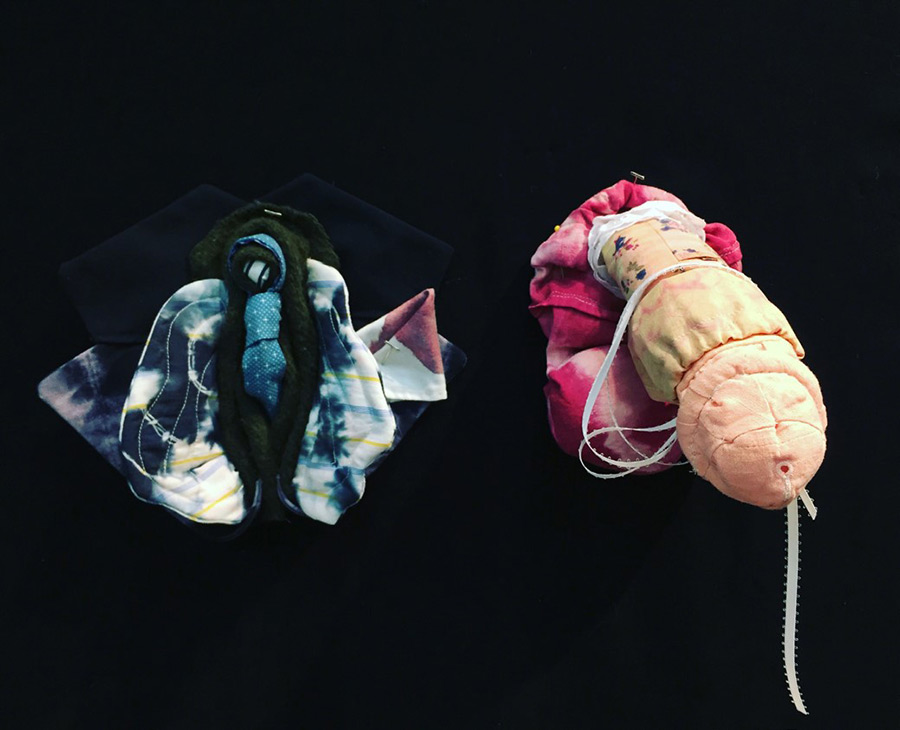BOONE, N.C.—The Looking Glass Gallery in Plemmons Student Union at Appalachian State University presents “APProach,” an exhibition of socially conscious art works by Appalachian’s current and former students, through March 10.
The exhibition is free and open to the public, and there will be a reception on March 3 from 6:30 to 8 p.m.
“APProach” was put together by Ariel Moran, Looking Glass’ curator, and by Doe Lee, the manager of Plemmons Student Union’s art collections. It reflects social justice-related topics that are of interest to Appalachian students and encourages conversations about them.
The topics examined in the exhibition include the pink tax, the perception of women as sexual objects, stigmas surrounding minority females, stigmas surrounding menstruation, the Syrian conflict, the perception and role of a black man and of non-white people, the perception of indigenous peoples, gun rights and gender roles as well as the appropriation of culture and art.
“This is an opportunity to strengthen our ties and be empathetic with those struggling in this time of change,” Moran said.
Among the highlights of “APProach” are Raven Moffett’s “They Told Me We Were All Dead”; Kellee Morgado’s “Tyed and Lace”; and Alexa Cavas’ “Higher Powers.”
Moffett, a junior from Atlanta, is pursuing a bachelor’s degree in art with a studio concentration in visual culture. “Dead,” a self-portrait, belongs to a series she is working on that documents young people who identify with their Native roots.
“Each image (in the series) focuses on the individual and their struggle with common misconceptions or projected stereotypes given their Native heritage,” she said.
In “They Told Me We Were All Dead,” Moffett addresses the suppression she feels as a white-passing Native American woman trying to have her voice heard.
“The title refers to a conversation I had at a young age wherein a white person told me I could not be Native American because all the Indians were dead,” Moffett said. “I am constantly affronted with invalidation when speaking about my Blackfoot ancestry. This is a struggle many Native and indigenous people share.”
As for Morgado, a senior from Grass Valley, California, she is pursuing a bachelor’s degree in graphic design. Her “Tyed and Lace” is a textile representation of genitalia with an intriguing twist: It consists of a penis made from reclaimed female clothing and a vulva made from reclaimed male clothing. The penis in the piece is interactive in the sense that viewers can untie its ribbon and adjust the “foreskin” to make the penis appear uncircumcised. “Tyed and Lace” reflects Morgado’s exploration of the portrayals of gender roles, and it aims to blur the lines between what is male and female when it comes to clothing.
Finally, Cavas, a sophomore from Wilson, is pursuing a bachelor’s degree in art management. In “Higher Powers,” a collage, she aims to make a statement about bureaucracy from the perspective of the oppressed citizen.
“We are a generation led by forces that claim to be greater than us,” she said. “They attempt to belittle our voices to squander the passion rising out of our throats and into the streets. However, we are not a generation to be bullied around.
“We are the big kids on the playground, and we do not tolerate misogyny, racial discrimination, mistreatment of our environment, among many of the other social injustices we sadly face today. We have just as much power as those political snakes, and we will fight to prove it. We are the generation that will change a nation.”
About the Looking Glass Gallery
The Looking Glass Gallery at Appalachian State University aims to exhibit, communicate and support the visual arts by offering students and the university the opportunity to become involved and experience artwork produced at Appalachian. The gallery is located in Appalachian’s Plemmons Student Union, 293 Locust St., in Boone. Hours of operation are 7 a.m. – 11 p.m. Monday through Friday; 9 a.m. – 11 p.m. Saturday; and noon – 11 p.m. Sunday.
About Appalachian State University
As a premier public institution, Appalachian State University prepares students to lead purposeful lives. App State is one of 17 campuses in the University of North Carolina System, with a national reputation for innovative teaching and opening access to a high-quality, cost-effective education. The university enrolls more than 21,000 students, has a low student-to-faculty ratio and offers more than 150 undergraduate and 80 graduate majors at its Boone and Hickory campuses and through App State Online. Learn more at https://www.appstate.edu.
What do you think?
Share your feedback on this story.





![How NCInnovation Is Rethinking Economic Development in North Carolina [faculty featured]](/_images/_posts/2026/02/rethinking-economic-development-600x400.jpg)








